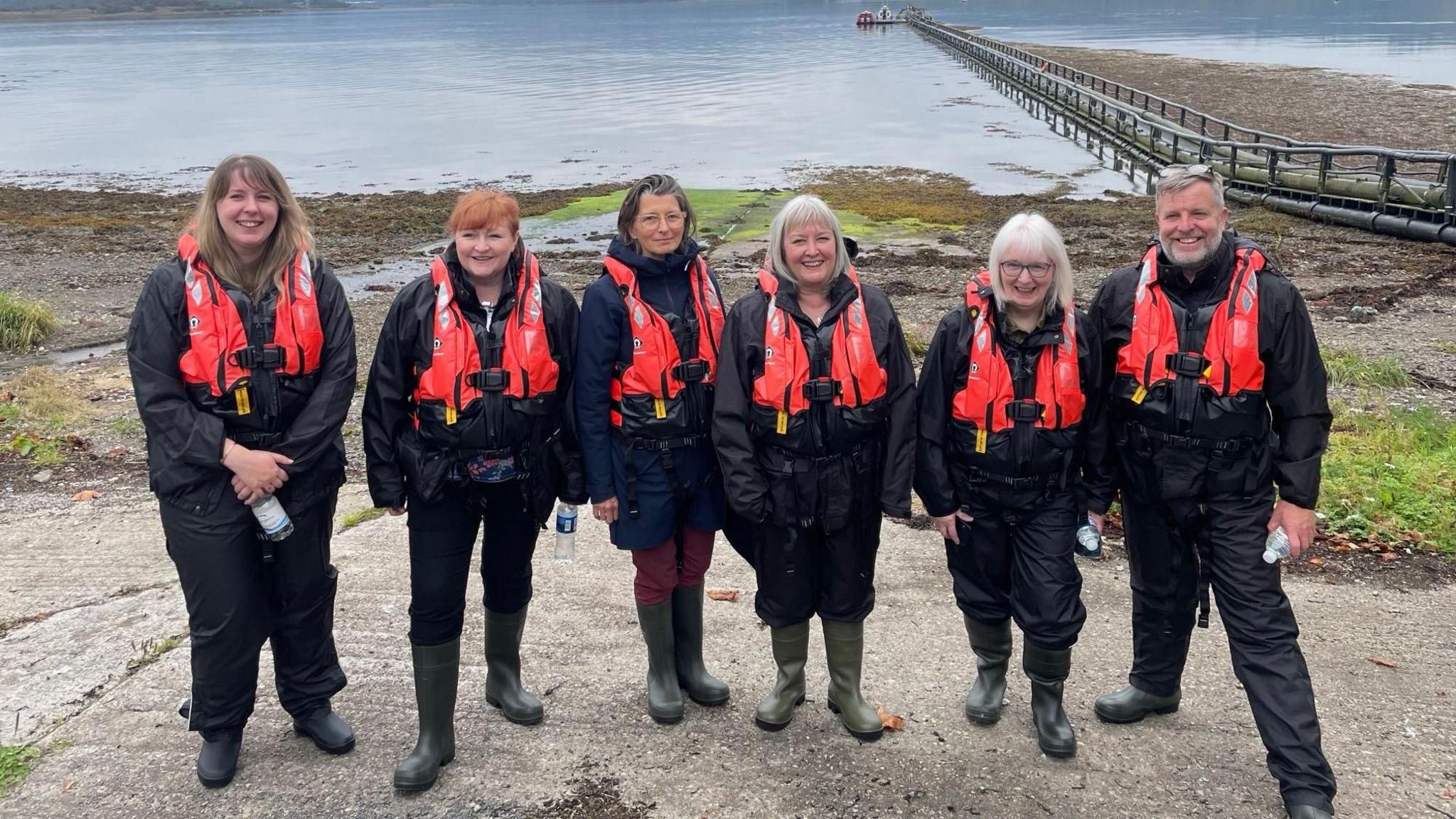Inspectors have no concerns over dead salmon at fish farm
Video showing dead salmon being removed before the visit by MSPs
- Published
Government inspectors say they have no concerns over the number of dead salmon removed from a fish farm just hours before MSPs visited.
Members of the Scottish Parliament's rural affairs committee visited Dunstaffnage fish farm near Oban on Monday 25 September for a fact-finding mission.
Animal Equality UK accused the fish farm operator of trying to paint a "wholly inaccurate" picture of the industry but Scottish Sea Farms insisted the footage showed "routine" operations.
Members of the Fish Health Inspectorate have now told committee members , externaldead fish removal is a "recognised aspect of animal husbandry".
The committee is holding a follow-up inquiry into how the sector has changed since a damning report in 2018 raised environmental concerns.
Following the release of the footage of dead and dying fish being removed, a spokesperson for the committee said it had heard concerns about fish mortality on salmon farms during its inquiry and added that the footage raised further questions for the committee.
BBC Scotland News understands that the removal of the fish on 25 September was not discussed with MSPs.
Fish farm 'removed tonnes of dead salmon' before visit by MSPs
- Published25 September 2024
Farmed salmon production drops by a fifth
- Published4 October 2023
Animal Equality UK accused the industry of wanting to "hide the truth" regarding parasites and diseases.
But Scottish Sea Farms, which operates the site, insisted the footage showed teams following standard operating procedures by regularly removing dead or dying fish.
It said the number of fish removed each time would vary between pens and from day to day.
But it insisted it had "categorically not" had a mass mortality event.
The inspectorate has written to the parliament committee saying 1,082kg of biomass was removed from the site on the day the footage was taken but said the mortality levels had not been above the voluntary reporting levels.
It said: "The FHI do not have concerns with the routine mortality removal procedure being undertaken in the video footage."

Six members of the rural economy and islands committee visited the salmon farm
On Tuesday, Dr Ralph Bickerdike, head of fish health & welfare at Scottish Sea Farms, said: "The response by the Fish Health Inspectorate reinforces what we clearly stated to the BBC last week: that the footage shows our farm team fulfilling their duty of care by swiftly removing any poorly fish or fallen stock, something we do each morning where conditions allow."
Abigail Penny, executive director of Animal Equality UK, said: "The public outcry upon seeing this footage speaks for itself.
"Containers full to the brim of dead animals tell a story that percentages on a page cannot. The fact this doesn't even cause regulators to bat an eyelid is deeply troubling.
"If this is business as usual, MSPs must question whether this is an industry Scotland should continue supporting."
Parasitic sea lice
Scottish salmon is the UK's biggest food export, worth £578m in 2022.
But the number of fish dying on farms has been increasing, with a record 17 million salmon deaths reported in Scotland last year.
Warm sea temperatures have led to a significant increase in micro-jellyfish which cause harm to farmed salmon.
There are also long-standing concerns around parasitic sea lice and the use of chemical treatments in open waters.
In 2018, Holyrood's environment committee concluded that Scotland's marine ecosystem faced "irrecoverable damage" from an expansion in fish farming.
A report by the regulator Sepa, in the same year, found that almost one in five salmon farms in Scotland failed to meet statutory environmental standards.
Another report, by the Scottish parliament's rural economy committee, made 65 recommendations for improvement but stopped short of backing a moratorium on new fish farms.
The current inquiry is examining to what extent those recommendations have been implemented.